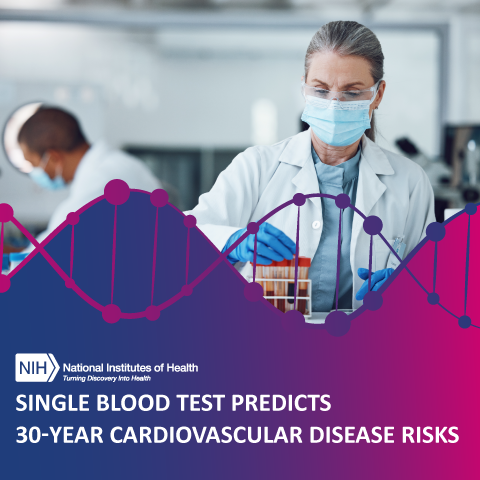
Researchers supported by the National Institutes of Health have found that measuring two types of fat in the bloodstream along with C-reactive protein (CRP), a marker of inflammation, can predict a woman’s risk for cardiovascular disease decades later. These findings, presented as late-breaking research at the European Society of Cardiology Congress 2024, were published in the New England Journal of Medicine.
For the study, investigators collected blood samples and medical information from nearly 30,000 middle-aged female health care providers living in the United States and followed the women over the course of 30 years. Researchers assessed how high-sensitivity CRP along with low-density lipoprotein (LDL) cholesterol and lipoprotein(a), or Lp(a), predicted cardiovascular disease events.
Researchers found that women with the highest levels of LDL cholesterol had a 36% increased associated risk for heart disease compared to those with the lowest levels of LDL cholesterol. Compared to women with the lowest levels of Lp(a) and CRP, women with the highest levels of Lp(a) had a 33% increased associated risk and women with the highest levels of CRP had a 70% increased associated risk for heart disease.
“We can’t treat what we don’t measure, and we hope these findings move the field closer to identifying even earlier ways to detect and prevent heart disease,” said Paul M. Ridker, M.D., M.P.H., a study author and the director of the Center for Cardiovascular Disease Prevention at Brigham and Women’s Hospital, Boston.
This research was supported by grants from the National Heart, Lung, and Blood Institute and the National Cancer Institute.
